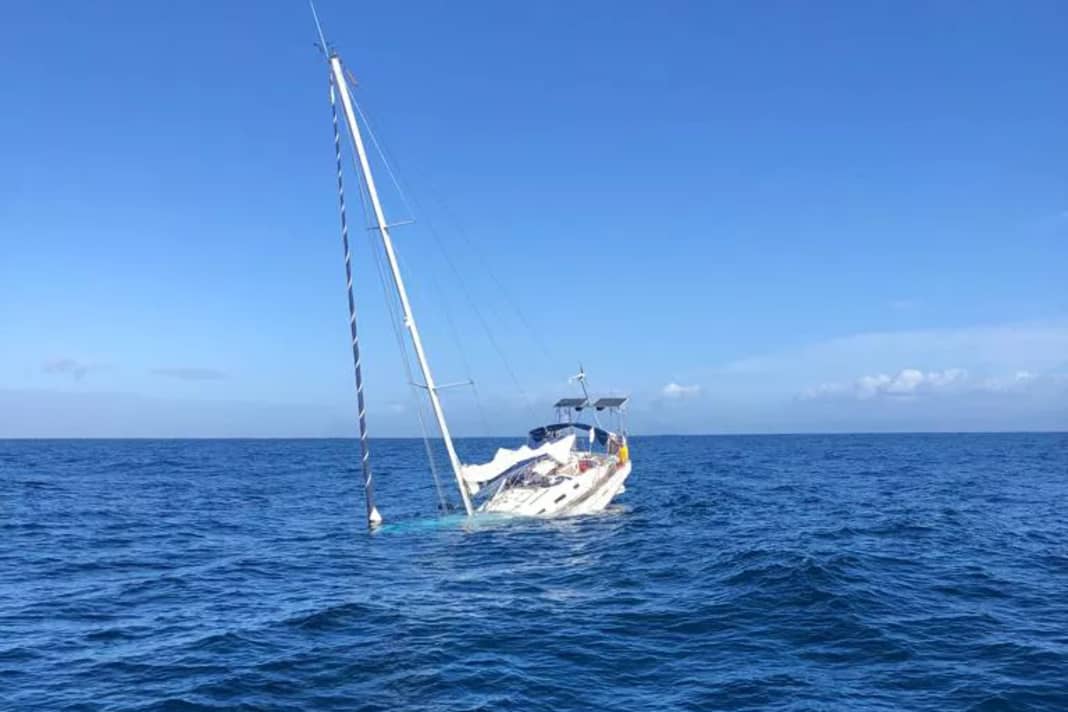




The Strait of Gibraltar is a nautical motorway, crossed by thousands of sailing yachts every year. In recent years, however, the region has become more threatening for sailors for a different reason. It is a danger that lurks beneath the surface of the water: the increasing number of attacks by orcas on sailing yachts. The rudder blades of sailing yachts under 20 metres in length are damaged particularly frequently. As Black antifouling was also identified as a risk factor due to a statistical accumulation.
According to recent statistics, around 500 orca attacks on yachts were reported between 2020 and 2023, with an alarming increase. The data shows that the number of attacks increased from 52 in 2020 to 197 in 2021 and finally to 207 in 2022. Despite these rising numbers, only around five per cent of yachts sailing around Gibraltar are attacked by orcas. So it's still a relative rarity, but definitely one worth considering and taking precautions against.
Read more about dramatic orca attacks:
In addition, around half of these attacks do not cause any material damage. More worrying is the fact that, depending on the year, between 19 and 25 per cent of the yachts attacked suffer serious damage. But why are these attacks increasing? And why do orcas attack yachts in the first place?
Whale-Pal attack protection: how much the orca pinger actually delivers
These questions still puzzle scientists. However, the researchers vehemently oppose the term "attack" and instead suspect playful interactions. In a study published in August open letter 80 experts express their concern that the animals' behaviour is often incorrectly portrayed as aggressive and as revenge against humans. This humanisation of animal behaviour is irresponsible and could encourage violence towards orcas. The marine conservation organisation "OceanCare" also takes a critical view of this, particularly because the subpopulation in question, which probably comprises 35 to 63 animals, is on the Red List of Threatened Species is classified as "critically endangered"
However, one thing is certain: the increasing number of orca attacks off Gibraltar requires serious and urgent investigation into the phenomenon and possible countermeasures. Marine biologist Professor Dr Boris Culik therefore used his experience with harbour porpoises to develop an orca pinger. The so-called whale-pal is a torpedo-shaped, 20-centimetre-long and six-centimetre-thick transmitter unit with electronics and battery that is towed and emits a sound. Ships equipped with this device are said to have an 80 to 90 per cent lower attack rate, although the data is still very sparse, according to the inventor.
Firecracker, sand & co: Are there other protective measures against orca attacks?
In addition to the relevant Behavioural recommendations For years, there have been various solutions for attacks, but also for route planning. However, the data available for the research was often too limited, the idea not fully developed or hardly practicable. In 2022, we reported v on a successful defence by sand. This should actually help, but it is difficult to have as much sand on board as is needed for a sustainable defence. One crew reported at the time that the sand initially worked, but when the sailors stopped spreading it, the animals attacked again and broke off the rudder.
There are now also more frequent reports of successful defence with various types of fireworks. Several crews report having fired these into the water, whereupon the orcas would disappear. It is usually assumed that the killer whales are chased away by the noise, but that it does not harm them. However, marine conservationists also see this as problematic and are also concerned about chemical pollution.
Do orcas in the North Sea also pose a threat?
Killer whales, which are considered to be very intelligent, can communicate and learn from each other. So far, however, only this one Iberian subpopulation has been found to be dangerous, and researchers do not expect this behaviour to spread to the dozens of populations worldwide. "It is very unlikely that this behaviour of 'rough play' with boats can be transmitted over long distances," says Mark Simmonds, scientific director at OceanCare. He can therefore give the all-clear: "Outside the area where the known Iberian subpopulation lives, there is no general danger from orcas to shipping."
This might also interest you:

Max Gasser
Editor Test & Technology

